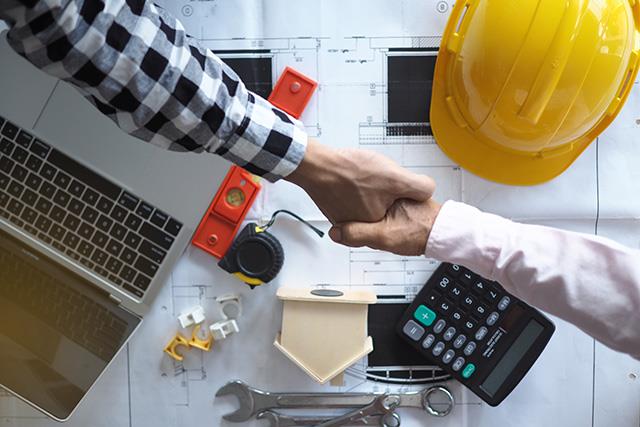Article from Property24
READ: 6 tips to consider before building your dream home
“Even if a builder is available and eager to start, it’s worth pressing pause to check their qualifications, compliance, and insurance,” says Danie Hattingh, spokesperson for business at the BIBC. Rushing into an agreement without proper vetting can expose homeowners to unnecessary legal and financial risks. “A giver of work often doesn’t realise they play a role in upholding industry standards,” says Hattingh. “By asking the right questions and checking credentials, you’re not just protecting yourself — you’re supporting ethical work practices across the sector.”
Check Their Credentials
Ask About Experience and Past Work
Make sure the builder has experience with the type of work you are commissioning. Ask to see photos of past projects or speak directly to previous clients to gauge the quality of their workmanship and professionalism.
READ: What you need to know about buying a plot
Request a Written Contract
This helps ensure expectations are aligned and provides a point of reference if issues arise.
Verify Insurance Coverage
Without proper coverage, you could end up bearing the cost of accidents or delays.
Clarify Work Hours and Site Conduct
The BIBC Collective Agreement regulates working hours, overtime, and year-end shutdowns. Builders must apply for exemptions if they intend to work outside these guidelines. Ensure the builder adheres to local bylaws around noise, traffic, and safety and ask how they plan to keep the site secure and safe, especially if you will remain in the home during the project.
Know Who is on the Job
If subcontractors will be used, find out who they are and whether they are properly registered, qualified and insured. It is also worth asking whether they have worked with the main contractor before and how that relationship is managed.
Be Cautious of Unusually Low Quotes
An extremely low price may seem tempting, but it often signals that something has been left out – whether it is quality materials, fair wages, or proper insurance. As Hattingh notes, “If someone is competing on price alone, it is a good idea to dig deeper. Low quotes can hide shortcuts that cost more in the long run.”
Ask the Right Questions
A contractor’s willingness to answer these questions clearly and confidently is often a sign of professionalism.
Hiring a builder does not have to be risky, but it does require due diligence. By asking the right questions, checking documentation, and trusting your instincts, you can protect your home, your budget, and the people working on your property. Being an informed client and giver of work is not just good for your build – it helps contribute to a more ethical and sustainable construction industry overall.
While not tasked with monitoring individual building projects, the BIBC’s experience in the industry has provided insight into the common risks and pitfalls that can arise and how to avoid them. We are not here to police your project,” says Hattingh. “Our goal is to share insights that help everyone – from homeowners to contractors – to build responsibly and protect what matters most.”
READ: Know before you buy: Common mistakes to avoid when purchasing property in SA
Antonie Goosen, principal and founder of Meridian Realty says one of the most common mistakes buyers make is assuming they can run a business from home or build a second dwelling without checking the zoning first," Goosen explains. "Just because a neighbour has a flatlet doesn’t mean the same will be permitted on your erf."
In some areas, particularly in heritage zones or environmentally sensitive regions, additional restrictions may apply. Goosen advises that buyers request the zoning certificate from the municipality and speak to a town planner or conveyancer before committing to a purchase—especially if future expansion or development is part of their plan.
